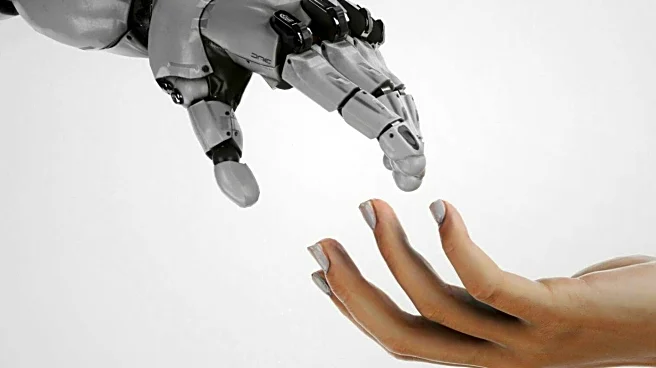What is the story about?
What's Happening?
A study conducted in Poland suggests that doctors may become overly dependent on AI systems for detecting polyps during colonoscopies. The research, published in Lancet Gastroenterology and Hepatology, found that gastroenterologists were 20% less effective at spotting abnormalities without AI assistance after using the technology. This raises concerns about the potential loss of critical skills among medical professionals as AI becomes more integrated into routine screenings. The study highlights the need for further investigation into how AI affects clinical practices and the skills of healthcare providers.
Why It's Important?
The findings of this study underscore the potential risks of overreliance on AI in medical settings, which could impact the quality of patient care. As AI systems become more prevalent in healthcare, there is a need to balance technological assistance with the preservation of human expertise. The study suggests that while AI can enhance diagnostic accuracy, it may also lead to a decline in clinicians' ability to perform tasks independently. This could have implications for medical training and the development of AI systems that complement rather than replace human skills.
Beyond the Headlines
The study raises ethical considerations regarding the integration of AI in healthcare. It prompts questions about the responsibility of medical professionals to maintain their skills and the role of AI in supporting rather than supplanting human judgment. The potential dependency on AI systems could lead to a shift in how medical education and training are approached, emphasizing the importance of understanding AI's limitations and capabilities. As AI continues to evolve, healthcare institutions may need to develop guidelines to ensure its responsible use.
















